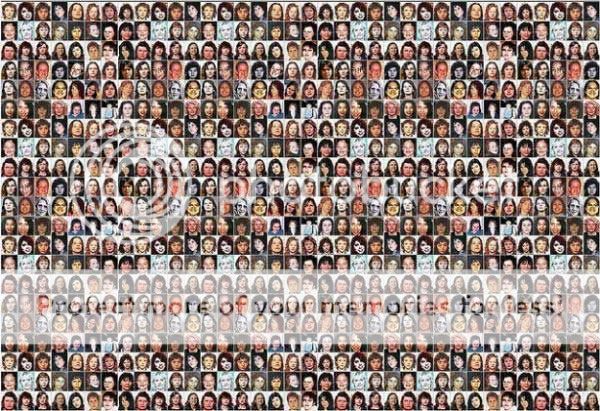ismnotwasm
ismnotwasm's JournalOld Portraits of Jews, ca. 1870-1925
Very cool pictures and visual history

Elderly Jews at the Western, or Wailing, Wall, Jerusalem. (Photo by Hulton Archive/Getty Images). 1880

A middle-class Jew from Tangiers in traditional cloak and cummerbund. (Photo by Hulton Archive/Getty Images). Circa 1890

Jewish men in Whitechapel, east London, march in protest against the killing of Jews in Poland. (Photo by Topical Press Agency/Getty Images). 1919
More:
http://www.vintag.es/2013/09/old-photos-of-jews-ca-1870-1925.html
Old Portraits of Jews, ca. 1870-1925
( hope this is ok to post here, some cool photos)

Elderly Jews at the Western, or Wailing, Wall, Jerusalem. (Photo by Hulton Archive/Getty Images). 1880

A middle-class Jew from Tangiers in traditional cloak and cummerbund. (Photo by Hulton Archive/Getty Images). Circa 1890

Jewish men in Whitechapel, east London, march in protest against the killing of Jews in Poland. (Photo by Topical Press Agency/Getty Images). 1919
More:
http://www.vintag.es/2013/09/old-photos-of-jews-ca-1870-1925.html
The Sex Jihad That Never Happened
You know, I'm a little speechless at this shit.
The video was one of many quoted by Tunisia’s interior minister Lotfi Ben Jeddou when he promised to stem the phenomenon of Tunisian women traveling to Syria to wage “sex jihad” where they were having sex with “20, 30, [or] 100” militants, before returning pregnant to Tunisia. Sex jihad, or Jihad al-nikah, permits extramarital sexual relations with multiple partners, and is considered by some hardline Sunni Muslim Salafists as a legitimate form of holy war.
“After the sexual liaisons they have there in the name of Jihad al-nikah they come home pregnant,” said Ben Jeddou, though he declined to name any specific cases.
Leila, who asked that her real name and details of her identity remain private, says that the entire story is a lie. The only part that is true is that two years ago she left her small village in Tunisia to volunteer as a nurse among the Syrian rebels fighting against Syrian President Bashar al-Assad.
It was there that she met her husband.
http://www.buzzfeed.com/sheerafrenkel/the-sex-jihad-that-never-happened
Beatriz survived her pregnancy, but at what cost?
Remember Beatriz? Remember Savita? Or rather, remember #RememberSavita?
Media has a funny way of making one story sound like the most important thing in the world, and then dropping that story like a hot potato a week later.
Savita was the woman who died in an Irish hospital after having been denied a life-saving abortion. Since then, Ireland passed its first abortion bill, making the procedure legal in a few limited circumstances, including when there is a threat to the mother’s life. Just last month, the country’s first legal abortion was carried out, saving a woman’s life.
Beatriz lives in El Salvador, and for months was denied a life-saving abortion by her government, which bans the procedure under any circumstances. Eventually, after widespread media coverage, El Salvador granted her a cesarean section (what was essentially a late term abortion), and she lived. Kathy Bougher notes over at RH Reality Check that “Beatriz’s fight to save her own life provided the citizens of El Salvador a real-time view of the actual meaning and costs of a law about which a large share of the population previously had little awareness.”
But what kind of life is she living now?
http://feministing.com/2013/10/01/beatriz-survived-her-pregnancy-but-at-what-cost/
*snort*
*warning offensive language*
(But I'm still laughing)
Thirty-three-year-old Daryush Valizadeh, known to his predominantly heterosexual male fan base as Roosh, is a well-known pick-up artist within the worldwide “Seduction Community,” which relies on pop evolutionary psychology to teach the art of getting laid. Its origins date back to dubious neuro-linguistic programming “speed seduction” theories in the early 1990s, but the Community rose to prominence with investigative reporter Neil Strauss’s 2005 bestseller exposé The Game: Penetrating the Secret Society of Pickup Artists, which spawned a VH1 reality show and drew aspiring “PUAs” to online forums and self-proclaimed gurus promising foolproof seduction strategies.
Pick-up artists believe that all women are the same: submissive, choosier than men when picking sexual partners, entranced by shiny objects. In the Community, players are self-made; most renowned pick-up artists claim they were socially awkward losers until they learned the tricks of the trade. If a pick-up artist hones his “inner game” (confidence) as well as his “outer game” (appearance), he can control his sexual future. When women come with cheat codes, rejection is not an option; if a play fails, the player tweaks his strategy instead of conceding defeat.
Roosh enjoys middling success as the author of the “Bang” series of travel guides, which trains readers to seduce women based on derogatory ethnic stereotypes. In Bang Brazil, Roosh warns his followers that “poor favela chicks are very easy, but quality is a serious problem.” He vows never to return to the Polish city of Katowice unless forced to “maintain the pussy flow.” Roosh’s predations haven’t gone without recognition. The Southern Poverty Law Center, a civil rights organization, included Roosh’s personal blog in a March 2012 report on American hate groups; it quotes an Icelandic feminist group that described Bang Iceland as a “rape guide.”
But Roosh’s Denmark directory diverges from his usual frat-boy Casanova fantasies liberally seasoned with rape jokes. Don’t Bang Denmark—note the dramatic title change—is a cranky volume that (spoiler alert!) probably won’t help any Roosh acolytes score. Roosh calls it the “most angry book” he’s ever written. “This book is a warning of how bad things can get for a single man looking for beautiful, feminine, sexy women.”
What’s blocking the pussy flow in Denmark? The country’s excellent social welfare services. Really.
http://www.dissentmagazine.org/article/cockblocked-by-redistribution
Chvrches’ Lauren Mayberry calls out misogynists
(Credit: Christian Bertrand / Shutterstock.com)
Lauren Mayberry, the lead vocalist of Scottish electro-pop band Chvrches, has written a poignant Op-Ed in the Guardian that’s all too relatable for women: the misogyny of the Internet. The band’s Facebook page has more than 100,000 “likes” on Facebook, and Mayberry, out of a sense of loyalty to her fans, personally reads every single message. For a long time, she ignored the sexist ones — until last week, when she posted this on Facebook, asking fans to “Seriously. Stop.”
While she received many comments of support, Mayberry’s post also resulted in … you guessed it … further misogyny:
“This isn’t rape culture. You’ll know rape culture when I’m raping you, bitch”
“I have your address and I will come round to your house and give u anal and you will love it you twat lol”
“Act like a slut, getting treated like a sluy [sic]”
“It’s just one of those things you’ll need to learn to deal with. If you’re easily offended, then maybe the music industry isn’t for you”
“But why should women ‘deal’ with this”? asks the singer, who has decided that it is not “all right for people to make comments ranging from ‘a bit sexist but generally harmless’ to openly sexually aggressive.” In other words, rape jokes aren’t “just jokes.”
“That it is something that ‘just happens,’ she explains. “Is the casual objectification of women so commonplace that we should all just suck it up, roll over and accept defeat? I hope not. Objectification, whatever its form, is not something anyone should have to ‘just deal with.’”
Cyberbullying, even in the form of anonymous comments on the Internet, has a real impact on real people and these messages undermine the hard work that Mayberry has prided herself on — messages that, by and large, her male peers don’t have to deal with. She writes:
More:
http://www.salon.com/2013/09/30/chvrchess_lauren_mayberry_calls_out_misogynists/
Natalie Portman attacks Hollywood's 'macho' women characters
Ok fine--she has a very valid point but I still loves me some Beatrice Kiddo from Kill Bill, Ridley from the alien franchise, Alice from resident evil and Luz from Machete (Jessica alba as Sartana--meh)
In an interview with Elle, to be published next month, she said: "The fallacy in Hollywood is that if you're making a 'feminist' story, the woman kicks ass and wins.
"That's not feminist, that's macho. A movie about a weak, vulnerable woman can be feminist if it shows a real person that we can emphasise with."
Portman has played numerous all-action characters in films such as the Star Wars prequels, Thor and V for Vendetta.
Her comments may have been directed at Angelina Jolie's Lara Croft and Scarlett Johansson's Black Widow. Both characters, featured in the Tomb Raider and Avengers franchises respectively, have won legions of fans for their uncompromising attitude.
http://www.independent.co.uk/arts-entertainment/films/news/natalie-portman-attacks-hollywoods-macho-women-characters-8849084.html
What the U.S. Doesn't Get About Violence Against Women

However, it also highlights a stark inconsistency in U.S. policy with regard to gender equity and civil rights. With unexpected bedfellows such as Iran, Sudan, and Somalia, the U.S. remains one of seven countries that has not yet ratified the Convention on the Elimination of All Forms of Discrimination Against Women (CEDAW). CEDAW is intended to provide a basis for "realizing equality between women and men through ensuring women's equal access to, and equal opportunities in, political and public life... education, health and employment... so that women can enjoy all their human rights and fundamental freedoms." In not yet ratifying CEDAW, while promoting Safe from the Start, the U.S. is sending a clear message to the international community that it will set the moral compass but not be held accountable to the same standards. In order to have a positive impact on the lives of women in conflict zones, the U.S. must demonstrate a resolute commitment to their equality overall. In order to do this effectively, the U.S. must finally ratify CEDAW and ensure the security and equality of its own female citizens.
Indeed, the need for the U.S. to take a solid stance on preventing violence against women and girls in conflict is unquestionable. Though statistics are scarce, particularly in perilous environments, even the lowest range of estimates indicates hundreds of thousand of women are victims of gender-based violence in conflict. With a range from 20,000-50,000 women raped in Bosnia in the 1990s, 250,000-500,000 in the Rwandan genocide in 1994, and over 200,000 in the Democratic Republic of the Congo (DRC) since 2008, we are looking at anywhere from 470,000 to 750,000 abused women in three conflicts alone. These numbers are staggering and unacceptable. However, just as important from a preventative standpoint would be to take a comprehensive look at the legal and cultural environment for women outside of conflict. Take the DRC for example. Despite the DRC's ratification of CEDAW in 1986 and the adoption of the Solemn Declaration on Gender Equality in Africa in 2004, the DRC does not offer legal equality to women. The most effective way of demonstrating this inequality is through the DRC Family Code. Article 444 of this Code says that “the man is the head of the household and the woman must obey him.” Regardless of the international documents the DRC has signed onto, it is still an unequal state for women, which offers greater insight on their treatment throughout the conflict. If the United States truly seeks to create a enduring shift in the way women are treated in times of conflict, it must be equally concerned with the ways in which women are treated in times of security.
Unfortunately, the United States has little room to talk in attempting to convince countries such as the DRC to advocate for gender equality both within and beyond conflict. Having not yet ratified CEDAW, the United States itself faces tremendous challenges in terms of gender discrimination and oppressive legislation towards women. From a constant battle in Congress and in our courts over a women's right to make decisions regarding her own body, to a continual disparity in pay rates, the cultural and legal battle over equality for women still wages on. And like a country in conflict, these inequalities are manifested in gender-based violence. Twenty percent of American women, or one in every five, have reported being a victim of sexual assault. And even more Americans have reported being a victim of domestic violence: 54 million Americans with almost twice as many women reported as men.
http://www.policymic.com/articles/65689/what-the-u-s-doesn-t-get-about-violence-against-women
non-stop-street-harassment-why-i-love-laci-green-moira-madden
We can see misogyny in the big decisions our leaders make. We can feel, experience, dread the misogyny in the everyday rules that people follow.
When the House passes a bill that would allow businesses to deny women reproductive health care, such as birth control, “based on moral or religious grounds,” we see it in an overarching, overwhelming, out-of-control way.
When the man on the bus corners me and asks me why I’m not smiling, I feel it—we see it in the strained look of the woman across the aisle who he’s going to sidle up to next.
Don’t you dare tell me that we no longer need feminism, activism, that consciousness-raising is dead, when the consciousness of our country often caters to the lowest common denominator.
I’m sick of you wanting me to be sexy, then denying me the right to be sexual.
Sick of vibrator envy and orgasm misinformation, done with being followed and scrutinized, over political hate. I can no longer wrap my head or body around being skin and bones and “real” simultaneously, when like most women, I fall somewhere on a spectrum of perfectly imperfect. Finished with anyone who embraces the feminine, like trans women and queer women, being made illegitimate.
http://www.elephantjournal.com/2013/09/non-stop-street-harassment-why-i-love-laci-green-moira-madden-video/
Families Compile Own Database of Missing and Murdered Women

Her eldest sister, Charmaine Desa, was murdered in downtown Edmonton in 1990. And Cardinal's sister-in-law, Lynn Minia Jackson, was found in a field in 2004 in Wetaskiwin, about 73 kilometres south of Edmonton.
Cardinal's story is not unique, and this puts her among the legions of family members fed up with a lack of progress in getting to the bottom of the issue of violence against aboriginal women in Canada. She is part of a movement to take control of matters affecting not only her family, but thousands of others. Born of their determination is a newly launched community-based database of missing and murdered indigenous women and girls, compiled by the victims' families themselves.
Two grassroots organizations in Canada, No More Silence and Families of Sisters in Spirit, have teamed up to compile the database, which was launched on Sept. 12. The database will record the date of disappearance and death for missing and murdered indigenous women and girls. It will hold details such as date of birth, nation, childhood and family background, education and work history, level of permission for use of data and primary contact information.
http://thetyee.ca/News/2013/09/28/Missing-Aboriginal-Women-Database/
Profile Information
Gender: Do not displayMember since: Mon Aug 23, 2004, 10:18 PM
Number of posts: 41,978